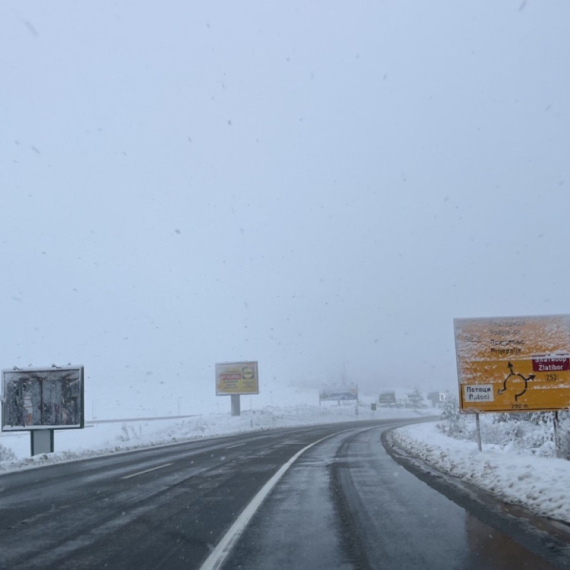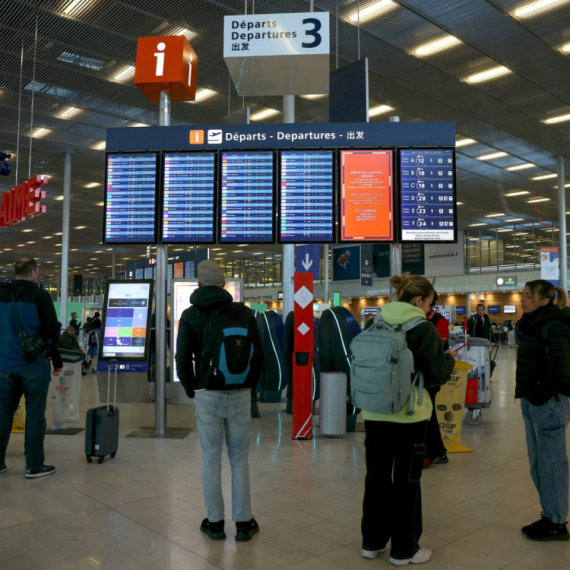EP rapporteur on Serbia’s EU integration
EP Rapporteur for Serbia Jelko Kacin has stated that Serbia should be absolutely supported on its path toward the EU membership.
Wednesday, 27.10.2010.
13:03

EP Rapporteur for Serbia Jelko Kacin has stated that Serbia should be absolutely supported on its path toward the EU membership. He added, however, that it was necessary to successfully complete cooperation with the Hague Tribunal and begin a dialogue with Pristina before Serbia’s each next step in that direction. EP rapporteur on Serbia’s EU integration Kacin today presented his report before the EP Foreign Policy Committee which will begin a two-month long discussion on draft resolution on Serbia. “Belgrade will clearly see from the EP report what’s good, but also what needs to be fixed. The report clearly supports positive trends in Serbia, but it also points to the problems in a spirit of true partnership,” he explained. According to the EP rapporteur, Serbia’s cooperation with the Hague Tribunal is “the most important criteria”, bearing in mind that two Hague indictees Ratko Mladic and Goran Hadzic are still at large. “There are different opinions about should Serbia be pressured over this. I think that it was a right thing to send the membership application to the European Commission for analysis but it should be made clear that there cannot be further progress without closing the issue of the cooperation with the Hague Tribunal. There won’t be positive opinion on candidacy without it,” he stressed. Kacin added that closing of the cooperation meant arresting and extraditing Mladic and Hadzic. “Aside from cooperation with The Hague, a problem that Belgrade has been encountering is relations with neighboring countries. There are problems, but also a significant improvement,” he said and named Srebrenica resolution which was adopted by the Serbian parliament as an example. The EP rapporteur pointed out that the biggest obstacle in Serbia’s good neighborly relations was “Belgrade’s attitude toward Pristina” which was disabling establishment of regional stability. In his opinion, the best way to solve the issue is the upcoming dialogue between Belgrade and Pristina, which “both sides must be maximally dedicated to”. Jelko Kacin (Tanjug) “Judiciary, corruption, media – main problems” Kacin explained that one of the problems Serbia was facing was necessity to establish “true rule of law”. He says that despite certain progress there are also some problems, primarily regarding implementation of judicial reform. The EP rapporteur points out that another problem is corruption and that the state should give its full support to the Anti-Corruption Agency. He stressed that Serbia also needed to solve the issue of restitution but that “no progress” had been made in this field so far. Kacin also pointed out problems in the media and said that Serbia had dropped 20 places in NGO Reporters Without Borders’ list and that there were serious threats against journalists and that perpetrators were rarely punished. “We should be completely clear in our support to Serbia’s efforts in its European integrations, but also clearly point to all problems. This is precisely the resolution’s goal,” he concluded. This is the first time that the EP Foreign Policy Committee is discussing the resolution on Serbia. MEPs will vote on the resolution at the EP plenary meeting in January after a two-month long procedure and amendments to the resolution in order for it to picture all most important events.
EP rapporteur on Serbia’s EU integration
Kacin today presented his report before the EP Foreign Policy Committee which will begin a two-month long discussion on draft resolution on Serbia.“Belgrade will clearly see from the EP report what’s good, but also what needs to be fixed. The report clearly supports positive trends in Serbia, but it also points to the problems in a spirit of true partnership,” he explained.
According to the EP rapporteur, Serbia’s cooperation with the Hague Tribunal is “the most important criteria”, bearing in mind that two Hague indictees Ratko Mladić and Goran Hadžić are still at large.
“There are different opinions about should Serbia be pressured over this. I think that it was a right thing to send the membership application to the European Commission for analysis but it should be made clear that there cannot be further progress without closing the issue of the cooperation with the Hague Tribunal. There won’t be positive opinion on candidacy without it,” he stressed.
Kacin added that closing of the cooperation meant arresting and extraditing Mladić and Hadžić.
“Aside from cooperation with The Hague, a problem that Belgrade has been encountering is relations with neighboring countries. There are problems, but also a significant improvement,” he said and named Srebrenica resolution which was adopted by the Serbian parliament as an example.
The EP rapporteur pointed out that the biggest obstacle in Serbia’s good neighborly relations was “Belgrade’s attitude toward Priština” which was disabling establishment of regional stability.
In his opinion, the best way to solve the issue is the upcoming dialogue between Belgrade and Priština, which “both sides must be maximally dedicated to”.
“Judiciary, corruption, media – main problems”
Kacin explained that one of the problems Serbia was facing was necessity to establish “true rule of law”. He says that despite certain progress there are also some problems, primarily regarding implementation of judicial reform.The EP rapporteur points out that another problem is corruption and that the state should give its full support to the Anti-Corruption Agency.
He stressed that Serbia also needed to solve the issue of restitution but that “no progress” had been made in this field so far.
Kacin also pointed out problems in the media and said that Serbia had dropped 20 places in NGO Reporters Without Borders’ list and that there were serious threats against journalists and that perpetrators were rarely punished.
“We should be completely clear in our support to Serbia’s efforts in its European integrations, but also clearly point to all problems. This is precisely the resolution’s goal,” he concluded.
This is the first time that the EP Foreign Policy Committee is discussing the resolution on Serbia.
MEPs will vote on the resolution at the EP plenary meeting in January after a two-month long procedure and amendments to the resolution in order for it to picture all most important events.
















Komentari 2
Pogledaj komentare